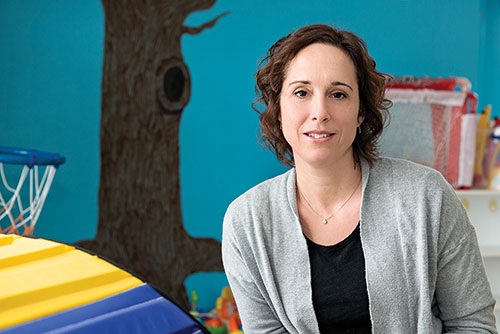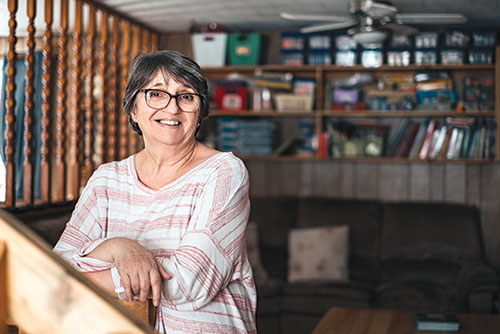Working with a mixed-age group of kids was a true revelation for Mélanie Gonneville1, especially after working with homogeneous groups for 17 years. “It’s so much easier to manage than a group of all the same age. When changing diapers, for example, I only have two little ones to change instead of seven!”

She feels that with her mixed-age group, she has more time to devote to her observations, since she does fewer interventions. This is something Pierre Latendresse2 noted as well: “Four- or five-year-olds are very egocentric and often will forget the younger ones. Mixed-age groups foster democratic interventions between the kids.”
Undeniable benefits for the children
Not only are mixed-age groups beneficial for childcare workers, but it also contributes to the global development of the children, according to Sylvie Becquereau3. “Kids have a lot of fun together, no matter their age, and every day they learn values like respect, sharing and helping,” she explains.
“Be it in a family daycare or CPE, the group composition allows the younger ones to have models and the older ones to develop more of their social abilities. The children learn to take care of one another,” adds Pierre Latendresse.
Convincing the parents
Many parents are worried that the group composition might have a negative effect on the older kids’ learning. However, according to Pierre Latendresse, this model is beneficial for academic transition: “Once in school, it’s rarely in class that a child has problems. It’s usually in the playground with older kids, where they are confronted to that mixed-age dynamic.”
“One shouldn’t think that in a mixed-age context, four- or five-year-olds don’t have specific activities for their age, continues Sylvie Becquereau. For my part, my educational service is designed by stages, with some reserved for the oldest.”

Benefits to document
For now, Pierre Latendresse thinks the childcare worker’s academic training should quickly integrate mixed-age notions, especially for those wishing to work in family daycare. “It really deserves to be taught!”
1 Mélanie Gonneville is an educator in educational services in a childcare centre and member of Syndicat des intervenantes en petite enfance de Montréal (SIPEM-CSQ).
2 Pierre Latendresse is a lecturer at Université du Québec à Montréal and a speaker and consultant in early childhood.
3 Sylvie Becquereau is an home childcare educator and member of Alliance des intervenantes en milieu familial - Centre-du-Québec (CSQ).
